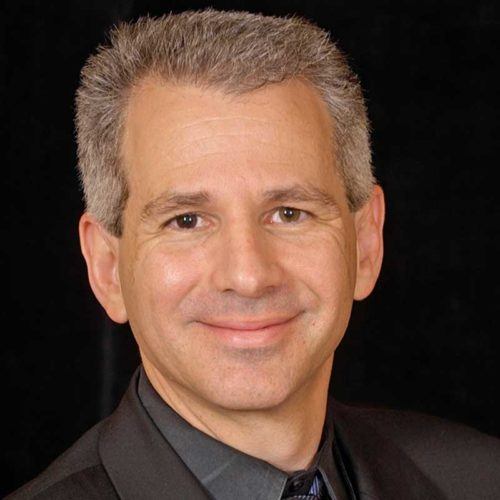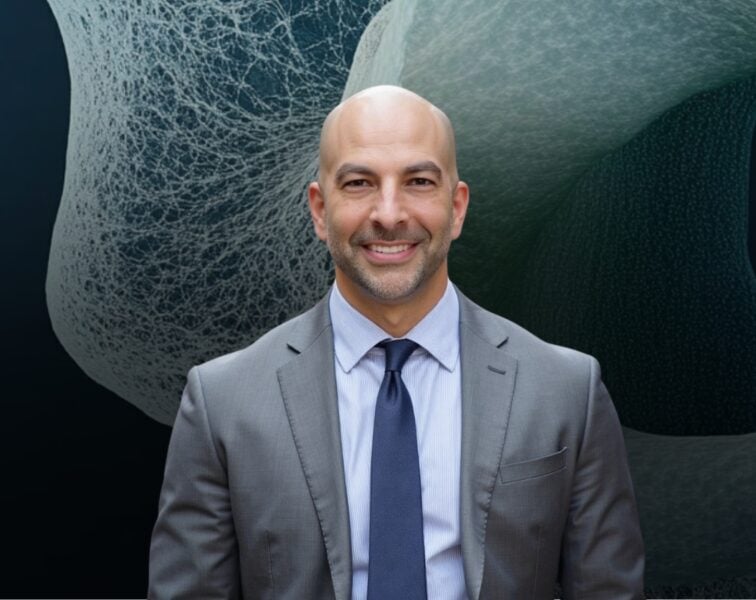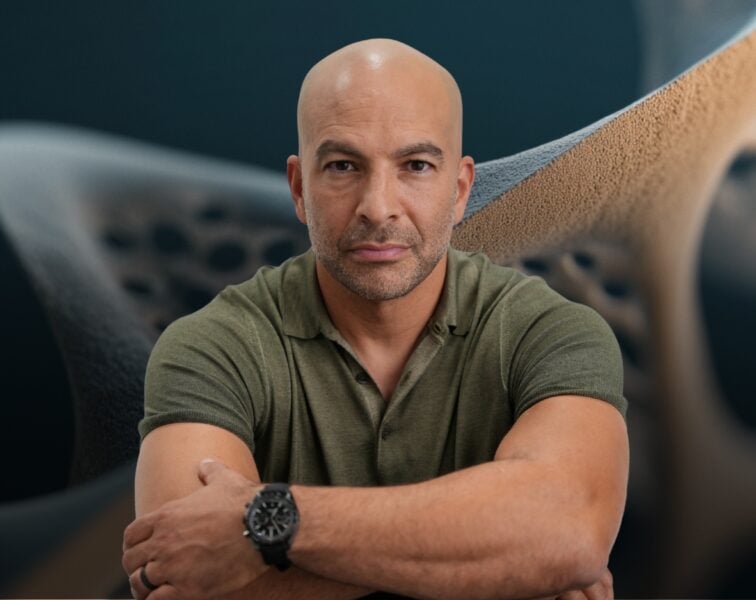Check out more content on this topic:
- (Oct 17, 2021) Ten errors in randomized experiments
- (Feb 26, 2022) Nutritional epidemiology: abolition vs defending the status quo
- (Feb 28, 2022) The science of obesity & how to improve nutritional epidemiology
David Allison is an award-winning scientific writer who has been at the forefront of obesity research for the last 20 years. Currently the Dean of the Indiana University School of Public Health, he has also authored many publications on statistical and research methodology and how to improve research rigor and integrity. David’s focus on evidence and data brings forth an interesting discussion of what we know (and don’t know) about the science of obesity. He provides an insightful and unemotional explanation of the potential impact of nutritional epidemiology in public health while also explaining its many pitfalls and limitations. He offers his take on the path forward in addressing the obesity epidemic, and he closes with a lucid explanation for the evident lack of credibility in science and the steps we can take to change that.
Subscribe on: APPLE PODCASTS | RSS | GOOGLE | OVERCAST | STITCHER
We discuss:
- David’s background, interest in obesity, and focus on evidence [5:00];
- The moment when the obesity crisis was recognized, and the sloppy science that ensued [13:00];
- What twins studies tell us about the genetics of obesity [20:30];
- How doctors and scientists have historically approached obesity treatment [23:45];
- Do surgical procedures for obesity prolong life? [32:00];
- The ‘Obesity Paradox’ [36:00];
- Interpreting BMI and mortality data and considering confounders [43:15];
- How body composition and ethnicity factor into consideration of BMI data [50:30];
- Superior tools for measuring obesity at the individual level [57:15];
- Using BMI data for actionable steps to combat obesity [1:02:00];
- Why maintaining weight loss is more challenging than losing weight [1:06:00];
- Differing perspectives on the utility of nutritional epidemiology [1:16:30];
- A mouse study illustrating the impossibility of fully controlling for confounds in observational studies [1:22:15];
- Limitations of nutritional epidemiology and how it can improve [1:26:30];
- Addressing the obesity epidemic—the path forward and obstacles to overcome [1:37:15];
- What David believes to be the most promising interventions we could take to address obesity and improve public health [1:47:30];
- Reproducibility in science, normative and non-normative errors explained [1:51:30];
- Rebuilding trust in science and differentiating between science and advocacy [1:59:00];
- More.
Get Peter’s expertise in your inbox 100% free.
Sign up to receive An Introductory Guide to Longevity by Peter Attia, weekly longevity-focused articles, and new podcast announcements.
David’s background, interest in obesity, and focus on evidence [5:00]
Even as an undergraduate David was focused on evidence, data
- Peter admires the intellectual approach David has to obesity research, his lack of emotional thinking
- For many people, the field of obesity is a loaded field, scientifically and politically
- David doesn’t really know why he turned out the way he did
- To quote his friend Don Ruben, “we may be able to figure out what the causal effect of X is, but we may not be able to assess whether X cause Y”
- When David went to college he wanted to be a psychologist
- What this meant to him at the time was Hitchcock films
- He was going to interpret people’s dreams and figure out the meaning
- When he got to college he started to think about the evidence for these things
- That opened up this whole can of worms
- He became more and more cognitive behaviorally-oriented
- He remembers in graduate school the professor explaining IQ tests and different theories of intelligence
- The professor noted that some people think there is 1 factor in intelligence, some people think 3 and one person thinks its 144
- David asked who was right
- The professor said, “Well, they bring their different evidence to bear, and they argue”
- David asked about the evidence
- The professor replied “these factor analyses…you have to go study multivariate statistics if you want understand that”
“So I don’t like to take anybody’s word for anything” – David Allison
- So David went and studied multi-varied statistics
- He became more and more involved with statistical analysis to the point where eventually people started thinking he was a statistician
- He sort of became, by evolution, a statistician, having been trained as a psychologist
- He thinks all of that comes down to evidence
- Body fat is no different than any other variable
- People are another variable; they still have to obey the same laws of probability and physics and mathematics and so on that we apply to anything else
- People talk and so folks who study people think about the words that people say, whereas if you’re studying atoms and molecules, you don’t think about the words they say, you just apply scientific methods
- For example the same person who would never question a diabetologist on what the beta cell of a pancreas is doing, would say to an obesity research, “Well, this is how obesity works and it’s this aspect of food or that aspect of culture or that aspect of child rearing”
- Based only on the fact that they were children or had children and had some experience
- David takes a step back and says, “whether it’s pigs today and pigs tomorrow, whether it’s Xs and Ys, they’re just variables and applying the same laws of thinking to all those systems”
David’s interest in the field of obesity
- As an undergraduate, a sophomore at Vassar College in New York, he took a class on human emotion and motivation.
- He studied the theories of Stanley Schacter, who at the time was a professor of psychology at Columbia University; he is since deceased
- Stanley was an amazing, brilliant man who wrote a book called Emotion, Obesity, and Crime
- He talked about the connection among these and how the distinction between our cognitive state and our physiologic arousal state might lead us to certain kinds of behaviors, including in the case of some people, eating more calories than they might otherwise eat
- His experiments were so creative; David just loved it
- He would put a clock on the wall and he would have the clock move a little faster, but not perceptively faster
- Then he would bring some students in and give them some work to do under some ruse
- Then the clock would say for some of the students at 11:00 AM, that it was noon, and he’d say, “By the way, I have a big tray of roast beef sandwiches out here. So whenever you’re hungry for lunch, just let me know and you can have some sandwiches.”
- For some people, the clock wouldn’t say it was noon until 1:00 PM
- And for some people, it would say it was noon at noon
- He’d say, “Who would be following the clock and who would be following the actual time?”
- Obese or overweight persons were more likely to follow the clock; this became the external theory
- This didn’t always work out; another experiment would show that it only holds up under this circumstance
- He would put a clock on the wall and he would have the clock move a little faster, but not perceptively faster
- He had to write lots and lots of papers at Vassar College
- He got a great education in writing and thinking there
- There were not so many tests but lots of papers
- When he took physiologic psychology, he would write about the physiologic psychology of obesity
- When he took behavioral psych, he wrote about the behavioral obesity
- When he took developmental, he wrote about the developmental aspects of obesity
- He loved being able to look at obesity from so many different angles
- No one researcher does this; everybody’s got their pet thing— this nutrient is toxic, the problem is food marking practices, the problem is cultural, it’s exercise
- There are so many factors involved and he enjoyed studying it from many angles (and he still does)
- He finished his PhD in the mid to late ‘80’s
- Obesity rates then were not as high as they are now
- There have been steady increases
The moment when the obesity crisis was recognized, and the sloppy science that ensued [13:00]
- Looking at the data from the 1700s forward, there have been relatively steady increases in obesity rates in westernized industrialized countries since then
{end of show notes preview}
Would you like access to extensive show notes and references for this podcast (and more)?
Check out this post to see an example of what the substantial show notes look like. Become a member today to get access.

David Allison, Ph.D
David B. Allison received his Ph.D. from Hofstra University in 1990. He then completed a post-doctoral fellowship at the Johns Hopkins University School of Medicine and a second post-doctoral fellowship at the NIH-funded New York Obesity Research Center at St. Luke’s/Roosevelt Hospital Center. He was a research scientist at the NY Obesity Research Center and Associate Professor of Medical Psychology in Psychiatry at Columbia University College of Physicians & Surgeons until 2001. He became Dean and Provost Professor at the Indiana University School of Public Health-Bloomington in 2017. Prior he was Distinguished Professor, Quetelet Endowed Professor, and Director of the NIH-funded Nutrition Obesity Research Center (NORC) at the University of Alabama at Birmingham.
He has authored more than 600 scientific publications and received many awards, including the 2002 Lilly Scientific Achievement Award from The Obesity Society (TOS); the 2002 Andre Mayer Award from the International Association for the Study of Obesity (IASO); the National Science Foundation–administered 2006 Presidential Award for Excellence in Science, Mathematics, and Engineering Mentoring (PAESMEM); and the 2018 Harry V. Roberts Statistical Advocate of the Year Award from the American Statistical Association. In 2009, he was awarded the Centrum Award from the American Society of Nutrition (ASN) and the TOPS research achievement award from the Obesity Society. In 2013, he was awarded the Alabama Academy of Science’s Wright A. Gardner award and the American Society of Nutrition’s (ASN) Dannon Institute Mentorship award. He was elected as a Fellow of the American Statistical Association (ASA) in 2007, the American Psychological Association (APA) in 2008, the American Association for the Advancement of Science (AAAS) in 2009, the NY Academy of Medicine in 2014, the Gerontological Society of America in 2014, the Academy of Behavioral Medicine Research in 2017, and inducted into the Johns Hopkins Society of Scholars in 2013. In 2012, he received an NIH Director’s Transformative Research Award entitled “Energetics, Disparities, & Lifespan: A unified hypothesis.” In 2020, he was awarded the American Statistical Association’s San Antonio Chapter 2020 Don Owen Award in recognition of excellence in research, statistical consultation, and service to the statistical community. In 2021, he received the Obesity Society’s Friends of Albert (Mickey) Stunkard Lifetime Achievement Award.
In 2012 he was elected to the National Academy of Medicine of the National Academies. In addition to co-chairing their Strategic Council for Research Excellence, Integrity, and Trust (with Marcia McNutt and France Córdova), he was selected for their ad hoc committee to develop methods for assessing misinformation about biological threats. He has also served on the Scientific Advisory Board for the Nutrition Science Initiative (NuSI) and served on the board-appointed Committee on Science and Technology Engagement with the Public (CoSTEP) for the American Association for the Advancement of Science (AAAS), 2014–2020.
He has contributed to many editorial boards and is currently an associate editor or statistical editor for Obesity; International Journal of Obesity; Nutrition Today; Obesity Reviews; Public Library of Science (PLOS) Genetics; Surgery for Obesity and Related Diseases (SOARD), and American Journal of Clinical Nutrition. Dr. Allison is also proud to be the founding Field Chief Editor of Frontiers in Genetics.His research interests include obesity and nutrition, quantitative genetics, clinical trials, statistical and research methodology, and research rigor and integrity. [Indiana University Bloomington School of Public Health]



